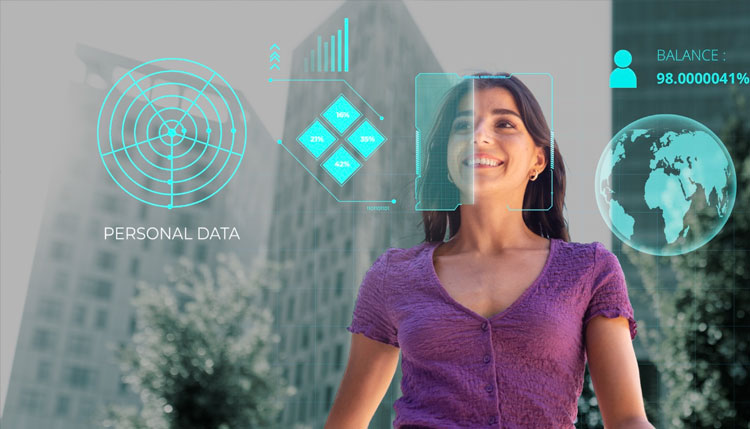
The Role of Biometrics in the Manufacturing Industry
In the dynamic manufacturing industry, where efficiency, accuracy, and security are vital, biometrics has emerged as a game-changing solution. As technology continues to evolve, the adoption of biometric systems has gained considerable momentum for its ability to enhance productivity and ensure robust authentication measures.
Biometrics, with its ability to measure and analyze unique physical or behavioural characteristics, has proven to be a game-changer in the manufacturing industry. From streamlining access control to effectively monitoring employees, biometric technology is reshaping the way manufacturers operate and significantly boosting their overall performance. With increased accuracy and efficiency, it’s no wonder that more and more manufacturers are embracing this revolutionary technology.
Access control in the manufacturing industry has greatly benefited from the implementation of biometrics. Unlike traditional methods such as ID cards, passwords, and key fobs, biometrics offer a more secure and reliable solution. With biometric technology, the risk of theft, loss, or unauthorized use is significantly reduced. When it comes to ensuring maximum security, biometric access control systems are the way to go. These systems utilize exclusive physical characteristics like fingerprints, iris patterns, or facial features for fool proof verification and access authorization.
With such advanced technology in place, you can have complete peace of mind knowing that only authorized individuals will have entry. Biometric access control systems offer manufacturers a fool proof way to safeguard their valuable assets and sensitive information. By restricting access to authorized personnel only, companies can ensure compliance with safety regulations and prevent any unauthorized individuals from entering restricted areas. This advanced security measure provides peace of mind and installs confidence in maintaining a secure work environment.
Employee monitoring has taken a significant leap with the integration of biometrics. In manufacturing plants, it is essential to accurately track employees’ attendance, working hours, and productivity levels in order to optimize operations and ensure maximum efficiency. Outdated approaches like time cards or manual logging are not only inefficient but also prone to errors and manipulation.
However, with the introduction of biometric systems such as fingerprint scanners or facial recognition cameras, businesses can now rely on accurate and reliable data when it comes to tracking employee attendance and working hours. By implementing this system, not only will time theft be eradicated, but payroll processes will also be streamlined. This will ultimately lead to significant cost savings for the manufacturer.
Moreover, the inclusion of biometrics in product management and traceability is crucial. Industries that prioritize accuracy and quality control can greatly benefit from biometric technology, as it allows for the identification of workers and the recording of their participation at every phase of production. This level of accountability ensures impeccable quality throughout the manufacturing process.
Manufacturers now have the opportunity to enhance accountability and ensure quality control by connecting biometric data with production data. This innovative approach enables accurate tracing of individuals who have contributed to a specific product, thus guaranteeing transparency and boosting overall product quality. In industries like pharmaceuticals or electronics, where adherence to strict regulations and product standards is crucial, the use of AI writing assistants can be incredibly valuable. They ensure that all requirements are met accurately and efficiently, reducing the risk of errors and non-compliance.
Biometrics technology brings undeniable advantages when it comes to workplace safety. In high-risk environments like manufacturing plants, the well-being of employees takes precedence, and biometrics can play a crucial role in ensuring their safety. Biometric identification offers a fool proof solution when paired with safety protocols, ensuring that only authorized individuals can operate machinery or access hazardous areas.
By integrating a biometric system with heavy machinery, it becomes impossible for anyone but the authorized operator to start it. This not only enhances workplace safety but also prevents any potential accidents or unauthorized access. By implementing strict measures to prevent untrained or unauthorized personnel from performing potentially dangerous tasks, the overall safety of the workplace is greatly enhanced. This proactive approach significantly reduces the risk of accidents and ensures a secure working environment for all employees.
Biometrics play a significant role in the manufacturing industry, but it is vital to acknowledge and address any concerns or challenges that may arise. Privacy and data security should be given utmost importance when integrating biometric systems into operations. Manufacturers have a crucial responsibility to safeguard biometric data and prioritize employee privacy by implementing robust security measures and complying with all relevant regulations. Equally important is ensuring the accuracy and reliability of the system to avoid false negatives or positives that could potentially disrupt production or compromise safety.
In conclusion, biometrics has revolutionized the manufacturing industry, making it a game-changer. With its applications in access control, employee monitoring, product quality management, and workplace safety, biometric technology offers a plethora of advantages that are hard to ignore. Manufacturers can greatly improve security, streamline operations, boost productivity, and guarantee compliance with regulations by harnessing the power of unique physical or behavioural characteristics.
This enables businesses to operate more efficiently and confidently in today’s ever-changing landscape. With the constant evolution of the manufacturing industry, it is clear that biometrics will have a larger impact on shaping its future. Their importance cannot be understated as they become an integral part of this ever-changing landscape. We at TrueID can help you with your biometric needs. For more information, please reach out to info@trueid.in or visit www.trueid.in











